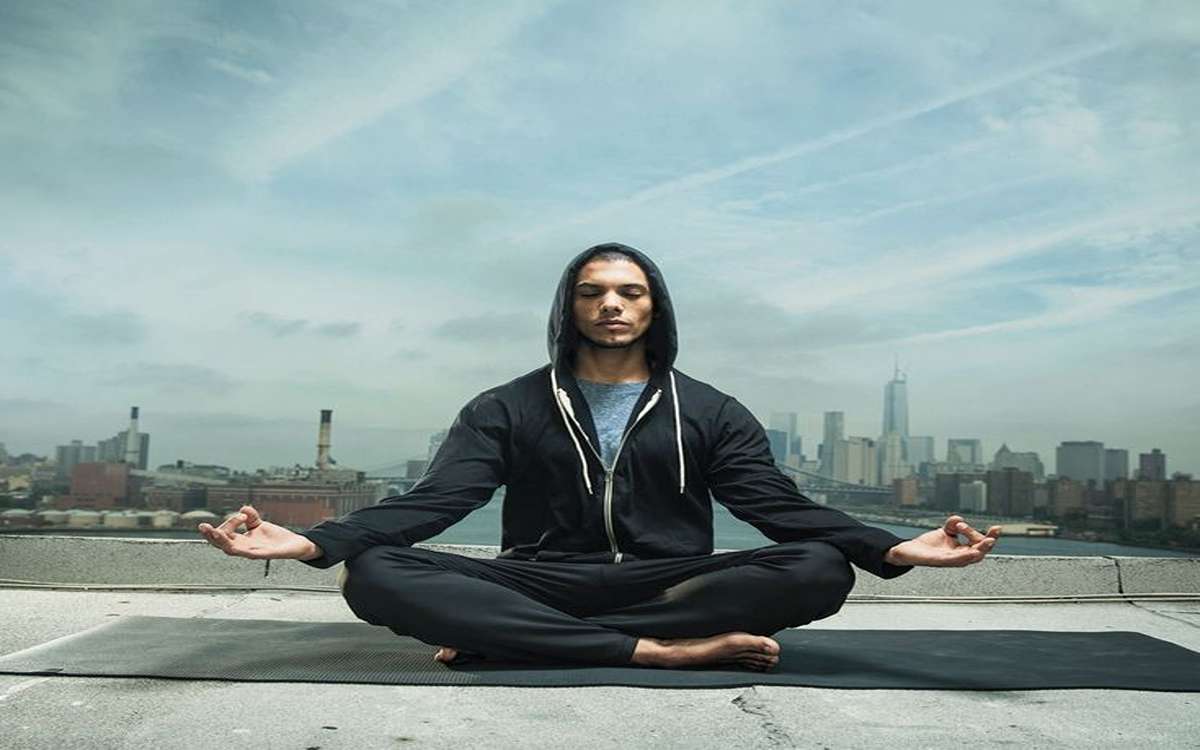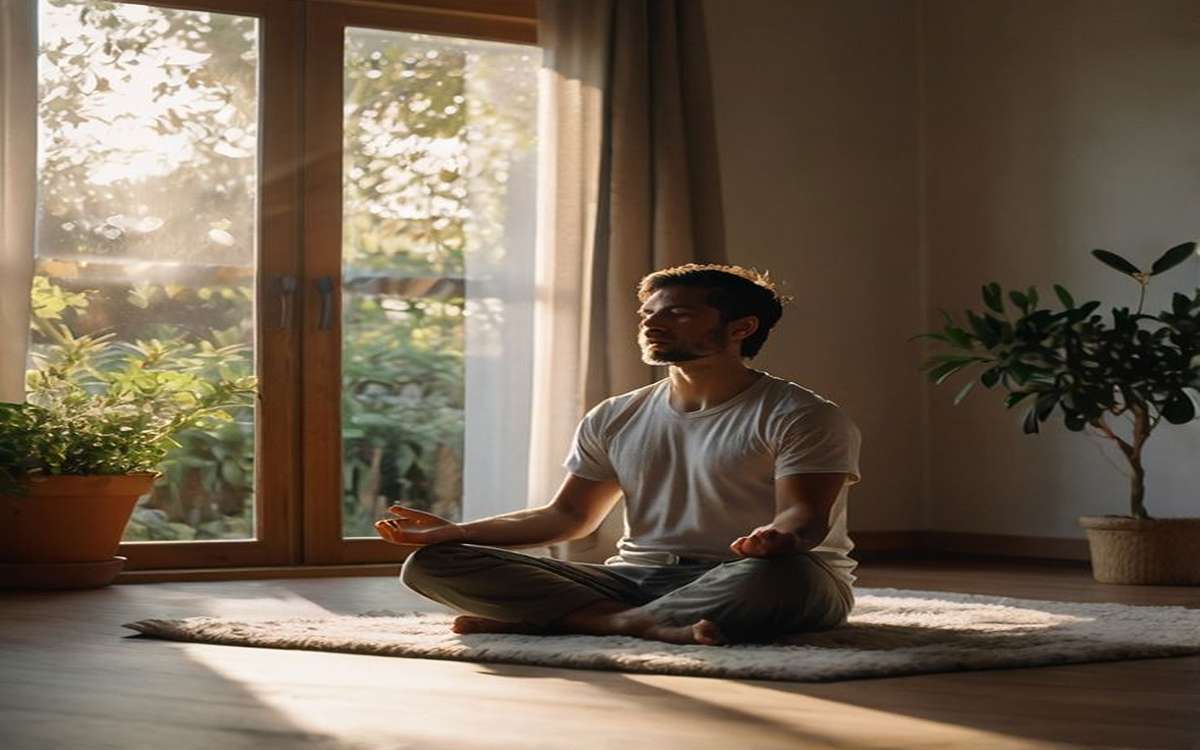Meditation Presently, the pace of life has put mental health on the list of the most serious issues worldwide. Millions and millions of people complain worldwide of anxiety, depression, and stress. mindfulness, transcendental meditation, guided meditation, meditation for anxiety mindful souls As a natural holistic exercise, meditation is today one of the best practices for improving mental health.
Whether you have chronic stress, struggle to manage the juggling act of life’s pressures, or simply as a way to foster inner peace. Here, we’re going to dive into the latest , techniques, and mind health trends as well as innovations including , so you can take control of your mental wellbeing.
I will share personal stories on how transformed my mental health. For example, helped me control anxiety and create a more mindful lifestyle. Let’s get started!
The Power of Meditation for Mental Health
This is the traditional practice of focused attention and deep breathing, which calms the mind, leading to a state of awareness and relaxation. From ancient roots, has grown through the ages, and the benefits for mental health have been assessed many times over. Studies have consistently shown that regular help minimize anxiety disorders, depression, and stress conditions and improve cognitive function, emotional control, and overall well-being.
One of the reasons works so well is that it actively re-wires the brain. Even regular practice increases grey matter in areas of the brain associated with memory, emotional regulation, and decision-making. This helps us not only to cope better with stress but also to improve our ability to focus, stay more in the present, and respond to life challenges with more calm and measured action.

Personal Story: How Meditation Helped Me Cope with Anxiety
I have always been an anxious child, and, especially during trying periods, would wake up with a racing heart, thoughts all over the place, and a sense of impending doom that seemed to grip me every morning. I only began to understand how incredibly it could affect my mental health.
I started doing very basic mindfulness. It was very hard to do for the first few sessions, but I slowly felt the changes coming. My anxiety did not just go away overnight; however, I became conscious of my anxious thoughts enough that they didn’t control me. I was able to breathe through moments of discomfort and keep some sense of peace amidst the chaos. This gradually became a necessary part of my daily routine that assisted me in handling stress effectively and living a very intentional life.
Mental Health Benefits of Meditation
Many benefits have been supported by numerous studies and personal experiences.
1. Reduced Stress
Perhaps one of the most commonly recognized benefits of is its stress-reduction potential. It creates an activation in the parasympathetic nervous system, known as the “rest and digest” system, reducing a body’s response to stress via the fight-or-flight response. Based on a 2024 journal published in the Journal of Clinical Psychology, mindfulness-based stress reduction (MBSR) may decrease cortisol levels and reduce a person’s sense of general stress who has chronic stress.
2. Emotional Control
While medtation enables a person to acquire more consciousness of their emotion and arms them with effective tools for managing the condition, it is most suitable for people having an onslaught of emotions or BPD, anxiety disorder, or depression. Because medtation allows one to stay between stimulus and reaction.
3. Concentration Improved and Cognitive Function Enhanced
Meditations has been proven to increase cognitive functions like attention, memory, and problem-solving. According to the University of California, 2023, eight weeks of daily medtation improved the attention span and cognitive control in participants which will then give them the ability to focus more easily in challenging or distracting environments.
4. Relief from Symptoms of Anxiety and Depression
Mindfulness, offers special benefits for people to deal with anxiety and depression. By training in being mindful, they can prevent dwelling upon errors of the past or concern over troubles of the future normal sources of anxiety and depression. Acceptance and self-compassion that have positive impacts on emotional well-being.

Medtation Techniques to Manage Mental Health
the most efficient styles to enhance mental well-being, the following is a list:
1. Mindfulness
Probably the most popular form of medtation is mindfulness medtation, widely used to combat stress and anxiety. It is centered on breathing, being in the moment, and observing thoughts and feelings without judgment. Mindfulness gives people a tendency to create a distance from their thoughts that makes it easier to manage negative emotions and mental clutter.
2. Loving-Kindness (Metta)
Loving-Kindness Medtation encourages cultivating love and compassion towards one’s self and other beings. This practice is done by silently repeating phrases like “May I be happy,” “May I be healthy,” or “May I live with ease.” Over time, it gains momentum in building pleasant feelings, reducing hostilities, and developing feelings of oneness and compassion.
3. Guided
Guided Meditation: It is listening to a recorded medtation led by an instructor. It is very helpful for beginners because it explains step-by-step how to meditate and usually combines visualization techniques that help reduce the tension in the person. It also keeps the person focused throughout their medtation practice.
4. Transcendental (TM)
Transcendental Medtation is a mantra meditation technique that involves silently repeating a word or phrase to focus the mind and attain an extremely deep state of relaxation. TM reduces stress, improves emotional well-being, boosts happiness, and elicits contentment. Many users use TM for chronic stress or anxiety.
5. Body Scan
Body scan medtation is where one walks a mental path along the length of the body from head to toe while focusing on areas of discomfort or tightness. It’s a great stress-relieving activity, considering increasing one’s awareness of bodily sensations; this can also be useful in understanding how emotional states influence physical health.
Meditation Dice: A Novel Tool for Mental Health
A new popular improvement tool for is the application of medtation dice. Using these will allow an organized and fun way to meditate on mindfulness. A set of common medtation dice consists of numerous dice with different prompts or actions such as the following:
You roll the dice, and where it lands gives you an answer for the prompt following it. It is fun and spontaneous for medtation practice. This tool is very helpful for a beginner with serious stress and for those who feel the need to be removed from their traditional way of meditatings technique
Medtation dice now have become a part of my daily routine, and I can say they have such a tremendous ability to get me back on course and focused if I feel all over the place or stressed. Sometimes, it only needs something like a gentle reminder, such as “Be present with your breath for 2 minutes” to center back in again. The dice remind me to take some time for myself without having to think much about it or struggle with complicated techniques.
New Meditation Trends and Updates
Medtation never stops being popular, and some new trends have emerged in 2024, becoming more accessible, effective, and engaging. Amongst these are:
1. AI-powered meditation apps
Artificial intelligence is creeping into the meditatio space. Medtationn apps like Calm and Headspace use AI to develop tailored plans for medtations. These are mood-tracking apps with feedback even bespoke guidance in specific techniques based on how you need them. meditation retreats , daily meditation, best sleep meditation, meditation for anxiety and depression, AI-based apps have become even more sophisticated with support and adaptive routines that modify with your advancements.
2. Virtual Reality (VR) Meditation
Virtual reality has raised medtations to a whole new level, as it now places the person in calming natural surroundings while guiding him or her through mindfulness exercises. VR medtations can create an entirely immersive experience that would help with relaxation, focus, and emotional well-being. Whether it is meditating on the beach or meditating in a serene forest, the use of VR is helping people escape the noise of everyday life and put themselves into a peaceful mental space.
3. Wearable Meditation Devices
One of the revolutionary inventions that are changing how people meditate is the wearable technology containing Muse headbands and Spire stones. These devices record everything that goes on in your brain, breathing patterns, and body movements and provide you with real-time feedback about your medtation practice. Wearable devices can assist individuals to perfect their techniques for medtations, reduce distractions, and achieve deeper states of relaxation and mindfulness.

Most Asked Questions About Meditation for Mental Health
Q: How often should one meditate to benefit mentally?
A: Ideally, medtations should be done daily. Even just 10-15 minutes a day improves one’s mental clarity remarkably, reduces their level of stress, and enhances their emotional regulating ability. The more a person practices, the more he or she will be receiving from the results.
Q: Is meditation a tool that can help battle anxiety and depression?
A: Of course, studies have shown that mindfulness medtation and other meditative methods do indeed have reduced significant symptoms of anxiety and depression. Medtations quietens the mind and enables a stay in the present, keeping thoughts at ruminative thinking to a minimum, which often lies at the heart of anxiety and depression.
Q: What are meditation dice and how might they contribute to an improvement in mental health?
A: Medtation dice are a fun tool that adds variety to your medtations practice. A die includes mindfulness-based exercises like breathing techniques or positive affirmations. The use of medtation dice makes your practice more engaging and accessible, especially when you’re feeling stressed.
